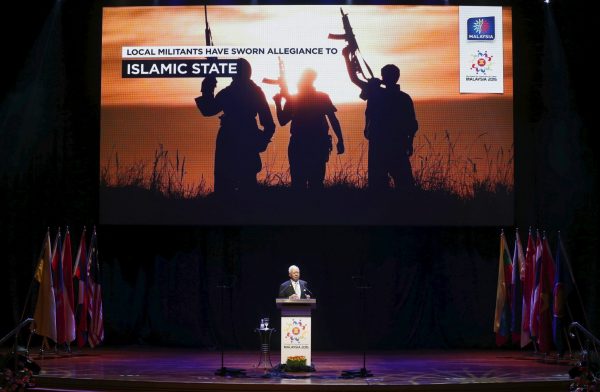But as IS continues to lose territory in Iraq and Syria, ASEAN also needs to address the significant security risks posed by returning combatants.
These risks come in the form of partnerships between IS and regional terrorist organisations. Organisations unaffiliated with IS — such as a regenerated Jemaah Islamiyah — compound the regional threat.
Academic research can contribute to a more robust understanding of terrorism and the development of policies appropriate for the diverse spectrum of Southeast Asian terrorism; in particular, ASEAN member states cannot expect to disincentivise terrorism without attempting to systematically understand the incentives of its practitioners.
Despite the popular post-9/11 narrative that terrorism is an irrational decision, the prevailing academic perspective is that terrorism is carefully calculated and entirely rational. Knowing that terrorists will act rationally to maximise their collective goals can provide a basis for long-term counter-terrorism strategies. These strategies can be further adjusted according to the grievances that incentivise specific terrorist membership.
The ASEAN counter-terrorism agenda is guided by two key documents: the 2007 ASEAN Convention on Counter-Terrorism and the 2017 revised ASEAN Comprehensive Plan of Action on Counter Terrorism. The ASEAN counter-terrorism strategy outlined in these documents reflects the intention to assimilate academic research into policy. This comes in the form of strategies that involve academic research, religious dialogue, economic initiatives and public participation, all of which prioritise cooperation in addressing the root causes of terrorism and conditions conducive to its spread.
Although ASEAN’s counter-terrorism strategy aligns with academic understandings of terrorist behaviour, it offers little towards a unified ASEAN position on national counter-terrorism strategies. Unilateralism is the dominant modality for ASEAN counter-terrorism, as the Plan of Action dictates that primary responsibility for countering terrorism rests with individual ASEAN member states. This disconnect and the diversity of terrorist membership across Southeast Asia have resulted in competing national conceptualisations of the threat and nature of terrorism.
One example of this disconnect is the marginalisation of Myanmar’s Rohingya population through the ‘national races’ ideology and institutionalisation of legal, political and economic discrimination. Myanmar’s unwillingness to consider Rohingya disenfranchisement in formulating their Rakhine State counter-terrorism campaign is evident in the labelling of Rohingya militants as ‘Bengali terrorists’. Counter-terrorism against ‘Bengali terrorists’ is grounded in identity rather than Rohingya socioeconomic disenfranchisement or the militants’ objective to overcome this disenfranchisement — a misalignment with ASEAN’s counter-terrorism strategy and academic research.
The Myanmar government needs to engage Rohingya communities as partners to begin disincentivising terrorism at the grassroots level. Entangling the ‘Bengali’ descriptor with terrorism threatens to blur distinctions between militant and non-militant Rohingya rights advocacy. This could undermine counter-terrorism strategies in the long run as continued government-sanctioned violence against Rohingya populations will exacerbate disenfranchisement, which will threaten to galvanise more of the aggrieved into militancy and even push militants into partnerships with IS or Al Qaeda.
As organisational norms prevent the imposing of ASEAN policies on members states, ASEAN must pursue alternative approaches to address these disconnects. ASEAN can play a more proactive and direct role in promoting track two dialogue — in particular, between academics and government officials acting in an unofficial capacity. In this setting, government officials can engage in more open and flexible discussion with their ASEAN counterparts and academics. Lessons learned from these discussions can then be integrated into more informed national counter-terrorism strategies.
ASEAN can support the activities of existing track two dialogue platforms such as the Track II Network of ASEAN Defence and Security Institutions and ASEAN Institutes of Strategic and International Studies. These networks have created a foundation of counter-terrorism dialogue on which ASEAN can capitalise. Furthermore, these platforms are well-positioned — through close affiliation between individual institutions and their respective governments — to harmonise national counter-terrorism strategy with ASEAN’s research-aligned counter-terrorism strategy.
Given ASEAN’s strength as an agenda-setter, it is of little surprise that its regional vision for counter-terrorism is aligned with academic understandings of terrorism. However, it is important for ASEAN to support the implementation of this vision at the national level in order to realise its goals.
Mathew Bukit is Editor and Research Fellow at the Cambodian Institute for Strategic Studies.

